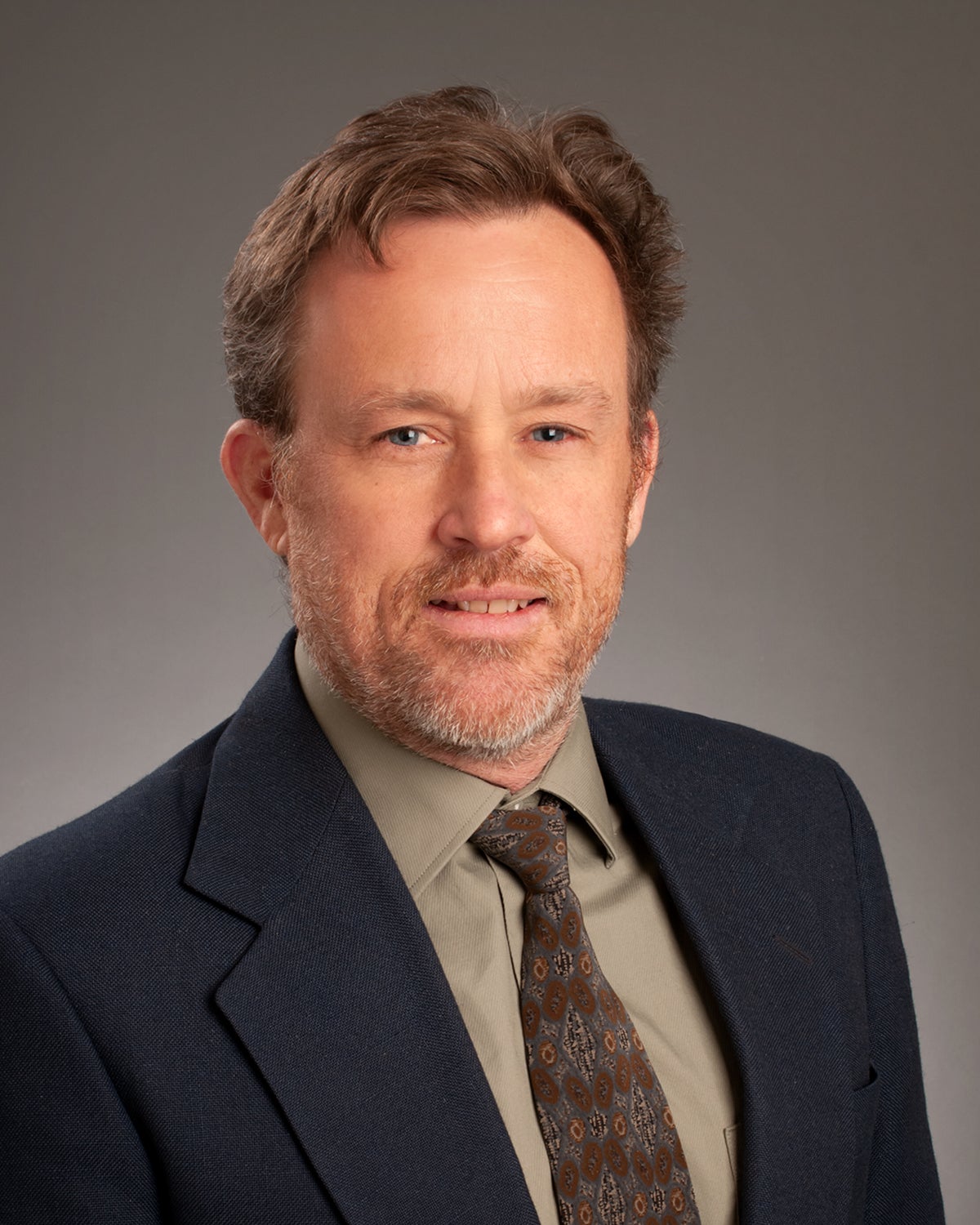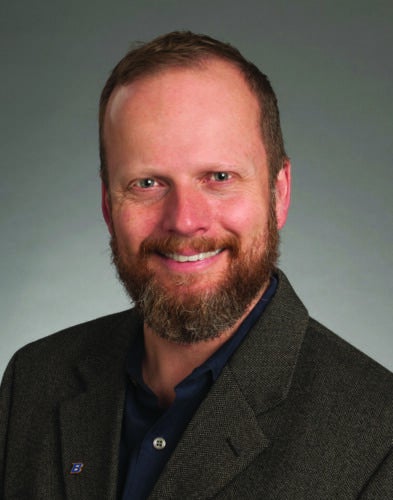Geosciences professors James McNamara and Mark Schmitz have the dual honor of being named Boise State Distinguished Professors for 2020. This title constitutes one of the highest honors that may be given to a faculty member at Boise State University and is reserved for a select few who have made significant contributions to their academic disciplines.
The campus community is invited to a reception honoring them from 4:30-6:30 p.m. April 23 at the Benjamin Victor Gallery.

McNamara, chair of the geosciences department, is considered an international leader in watershed hydrology. He is a prolific scientist and researcher who has worked as lead investigator on more than $3 million in grant projects, and has been co-investigator on another $9 million in grant projects. In addition, he has published 90 peer-reviewed articles, which have been cited more than 4,700 times.
“His publishing and impact are on a positive trajectory given that over half of these citations have been made within the past five years,” said Schmitz, who nominated McNamara for the honor. “By these metrics, Dr. McNamara is among the top 10 most productive faculty members at Boise State University.”
In addition, McNamara is credited as having created Boise State’s master’s program in hydrologic science, launched the Dry Creek Experimental Watershed project, and in addition to his research, works as the primary advisor for 36 graduate students.
“My research program seeks to improve understanding and predictive capability of the interactions between hydrologic processes, landscape form, ecosystem functions and water resources through integrated observations and models,” McNamara said.

Schmitz also is a prolific writer, researcher and leader in his field of isotope geochronology and its application to Earth history. He has published more than 100 peer-review articles and is arguably the most cited scientific author at Boise State University, having been cited more than 15,000 times. Roughly 9,500 of those instances are found in one edited volume – “The Geologic Time Scale 2012” – which underscores his work’s significance in the broad field of Earth Sciences. He has also supported his research on campus with $6.5 million in grants and awards funding – all while shouldering one of the highest teaching loads in the Department of Geosciences.
“For the most part, his record speaks for itself – many of his mid-career contemporaries (including me) would be extremely proud of his current achievements at the conclusion of a distinguished and productive academic career, so it is remarkable to consider that Mark still has decades of academic excellence ahead of him,” said Simon Bodorkos, a senior geochronologist at Geoscience Australia.
“I can attribute much of my growth over the past few years to Dr. Schmitz’s wise mentoring,” stated doctoral candidate Claire Harrigan. “I think he has the uncanny ability to ‘plant’ ideas in my head; he knows how to subtly point me down a path so that I can go through the process of discovery on my own. Through this, he teaches his students agency and independence.”